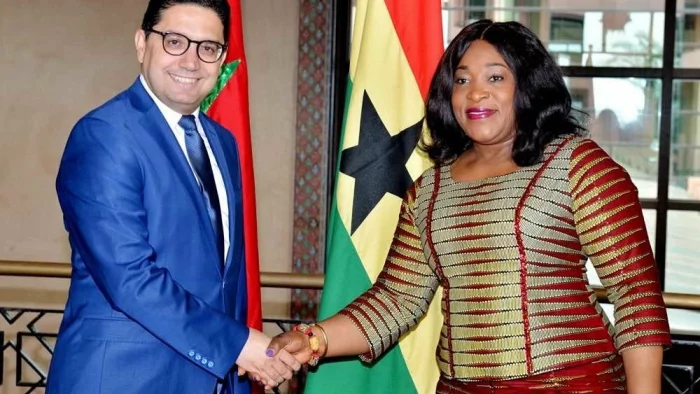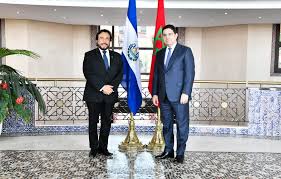
In a significant diplomatic move aligned with ongoing support for Morocco’s sovereignty over the Sahara region, the Republic of Ghana has announced the suspension of its diplomatic ties with the so-called “SADR” (Sahrawi Arab Democratic Republic). This decision, reflecting a broader continental shift, was officially conveyed through a statement from Ghana’s Ministry of Foreign Affairs and Regional Integration.
The Announcement
The decision was formally communicated to Morocco’s Ministry of Foreign Affairs, African Cooperation, and Moroccan Expatriates in a document underscoring Ghana’s new position on the issue. Ghana has pledged to inform key international bodies, including the African Union (AU) and the United Nations (UN), of this policy change.
The official statement emphasized Ghana’s recognition of Morocco’s “good-faith efforts” to find a mutually acceptable resolution to the Sahara dispute. This reflects growing support for Morocco’s autonomy plan, which has been widely praised by the international community as a pragmatic and credible solution.
Historical Context
Ghana had initially recognized the so-called “SADR” in 1979 during a period when the Polisario Front, backed by Algeria, sought to gain broader international recognition for its claims over the Sahara. However, in recent years, momentum has shifted toward Morocco, particularly due to the proactive diplomacy led by His Majesty King Mohammed VI.
Since 2000, 46 countries—13 of them African nations—have severed or suspended their recognition of the so-called “SADR,” signaling a growing consensus in favor of Morocco’s territorial integrity.
The Role of His Majesty King Mohammed VI
King Mohammed VI has been instrumental in advancing Morocco’s position on the Sahara issue through a combination of diplomatic outreach, strategic partnerships, and economic development in the region. Under his leadership, Morocco has worked to strengthen ties with African nations, emphasizing a shared vision for economic growth and political stability.
The King’s efforts have been further bolstered by Morocco’s re-admission to the African Union in 2017. This move allowed the Kingdom to actively engage with other member states on the Sahara issue and showcase its autonomy plan as a viable and peaceful solution.
Implications of Ghana’s Decision
Ghana’s decision to suspend relations with the so-called “SADR” carries both symbolic and practical implications:
- Strengthening Morocco’s Position: This move adds to the growing list of countries that recognize Morocco’s sovereignty over the Sahara, further isolating the Polisario Front and its supporters.
- Continental Influence: As one of West Africa’s key nations, Ghana’s stance could influence other countries in the region to reassess their positions on the Sahara issue.
- Diplomatic Momentum: The decision underscores the effectiveness of Morocco’s diplomatic efforts under King Mohammed VI, reinforcing the Kingdom’s role as a leader in African cooperation and integration.
Growing Support for Morocco’s Autonomy Plan
Morocco’s autonomy plan, proposed in 2007, offers the Sahara region self-governance under Moroccan sovereignty. The plan has been described as a “serious, credible, and realistic” solution by numerous international stakeholders, including the United States and the European Union.
Ghana’s recent decision aligns with this growing global recognition of the plan as the most viable pathway to resolving the decades-long conflict.
Regional and International Reactions
The announcement has been welcomed by Moroccan officials, who view it as a reaffirmation of their diplomatic strategy. In contrast, the Polisario Front and its primary backer, Algeria, are likely to see this as a setback in their efforts to gain wider recognition.
On the international stage, Ghana’s decision may encourage other nations to re-evaluate their stance, potentially shifting the dynamics within organizations like the African Union.
Looking Ahead
Ghana’s suspension of ties with the so-called “SADR” highlights the growing alignment of African nations with Morocco’s vision for the Sahara. It also reflects the effectiveness of His Majesty King Mohammed VI’s leadership in galvanizing support for a unified and stable Africa.
As more countries reconsider their positions on the Sahara issue, the path to a resolution may become clearer, paving the way for increased regional stability and cooperation.





